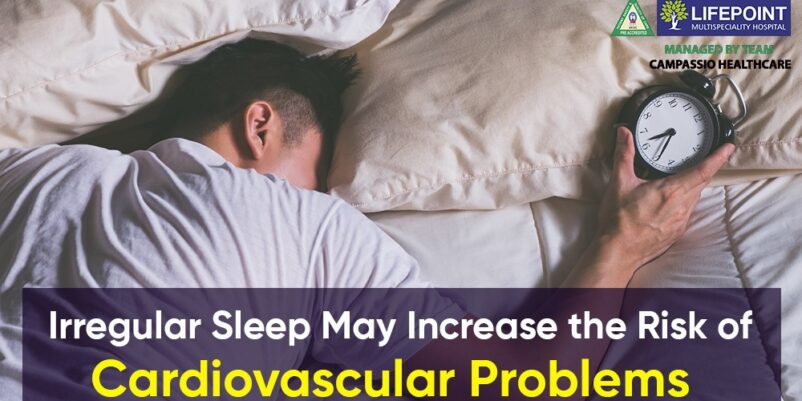Healthy living is considered stopping smoking, drinking, and working out every day while eating a healthy diet by most people. The rise in diabetes cases, heart attacks, and cancer have been attributed to late-night binge-watching and overtime on projects past midnight. The study finds that the “night owl” lifestyle makes you more cognizant of your sleeping patterns.
According to national statistics gathered by the South East Asian Academy of Sleep Medicine (SEAASM) at an international conference, there has been a worldwide decline in the average number of hours we sleep daily. India ranks second-to-last on the list with 6.55 hours of sleep per day on average.
The body must rest well at the end of the day so that it can rejuvenate itself. Body functions include building the immune system, promoting a healthy Central Nervous System, and taking care of the heart. Poor quality sleep or irregular sleeping patterns can lead to weak immunity, digestion disorders, hormonal imbalances, and psychological disorders such as depression, bipolar disorder, hallucinations, and other problems.
Many studies have demonstrated the links between insufficient sleep and disorders and how this affects health. Despite this, no study has examined the effect of irregular sleeping patterns – sleeping and waking at different times or having varying levels of sleep – so far. In order to identify healthy sleep habits and understand their effects on the heart, this study suggests that it’s not just about the quantity of sleep but the consistency and quality of sleep.
According to Huang, “Interfering with our body’s natural sleep patterns is linked to cardiovascular risk factors such as hypertension, insulin resistance, or diabetes.”. This is the first study to demonstrate the link between irregular sleeping patterns and cardiovascular disease.
However, it’s not clear why irregular sleep patterns could be exerting this effect. There is a possibility that the cause is a disruption in the body’s circadian rhythm, which helps to regulate sleep and wake cycles. Our cardiovascular systems follow circadian patterns, such as heart rate, blood pressure, and other functions.
Researchers studied more than 2,000 healthy adults ages 45 to 84 over the course of five years who showed no signs of cardiovascular disease. Nevertheless, it is incorrect to say that heart disease is only a concern for older adults. In addition, Huang emphasizes that younger people have more excellent work and study demands, which may increase the likelihood of sleep irregularities in youth. We can quickly see how infant and childhood health concerns such as a high body mass index or high cholesterol levels could snowball into major problems later and why adequate quality sleep is necessary at any age.
You can improve sleep quality by changing your lifestyle, including:
- Do not be stressed or anxious.
- Reduce the amount of screen time before bedtime.
- Meditation and yoga improve the body’s ability to relax.
- Two hours before bedtime, diners should consume their dinner.
- So you can sleep well at night avoid taking short naps at that time of day.

